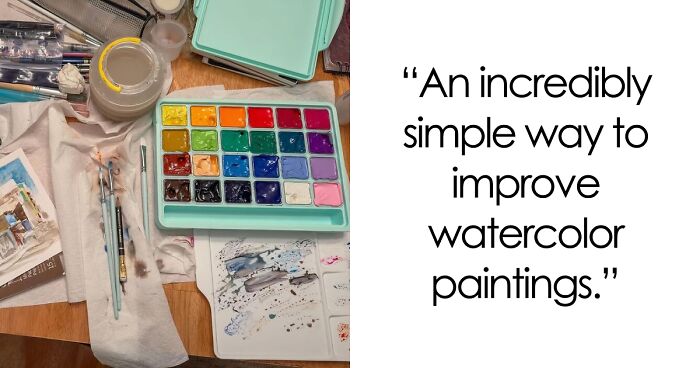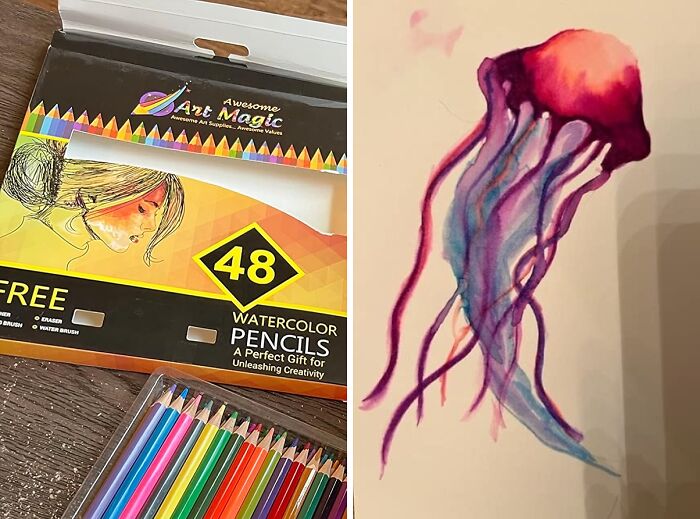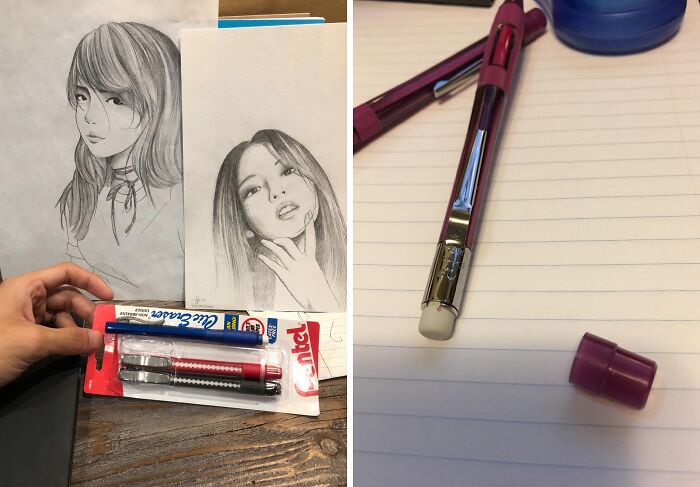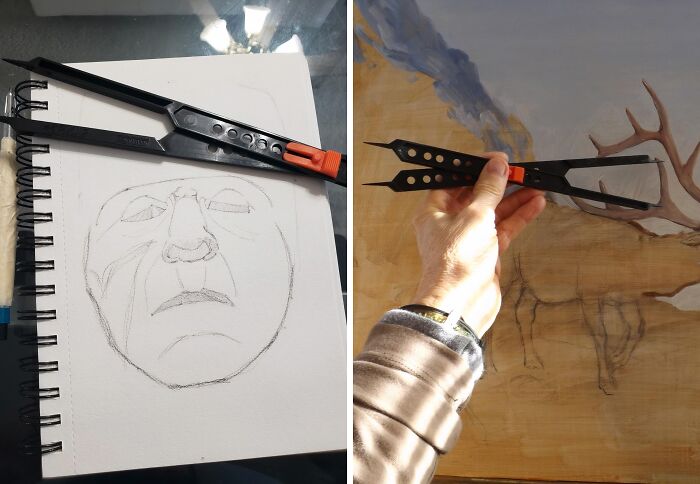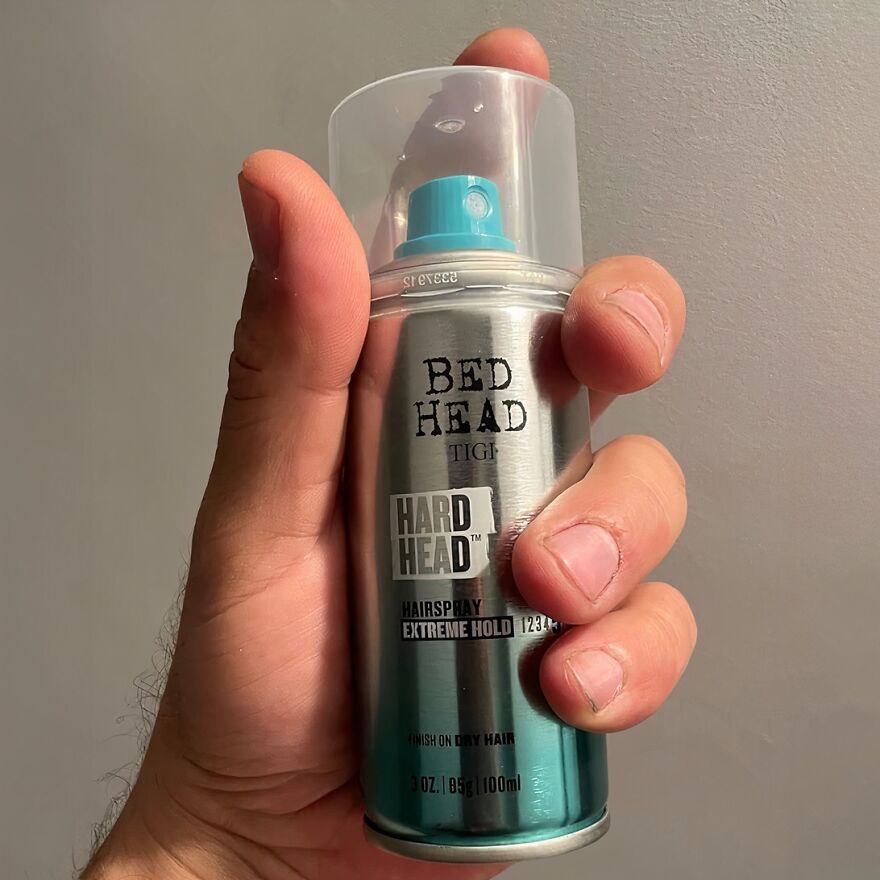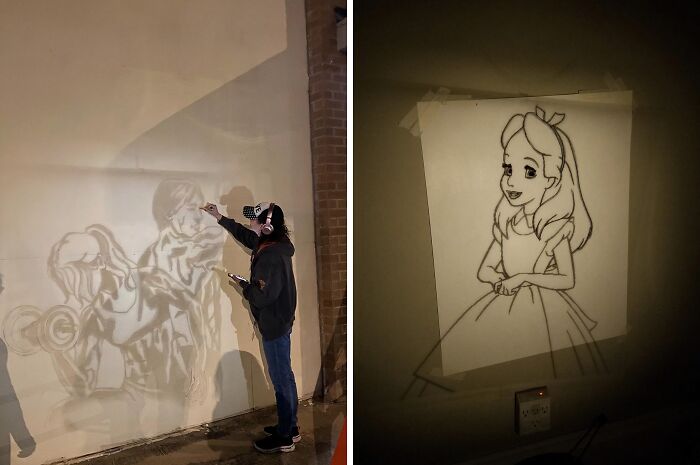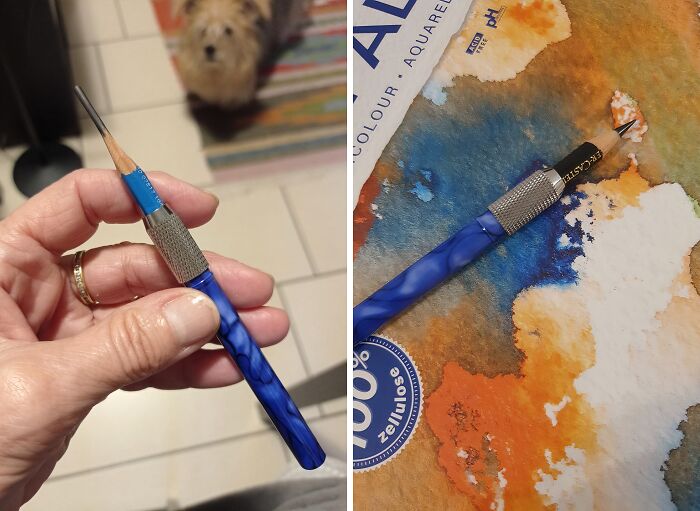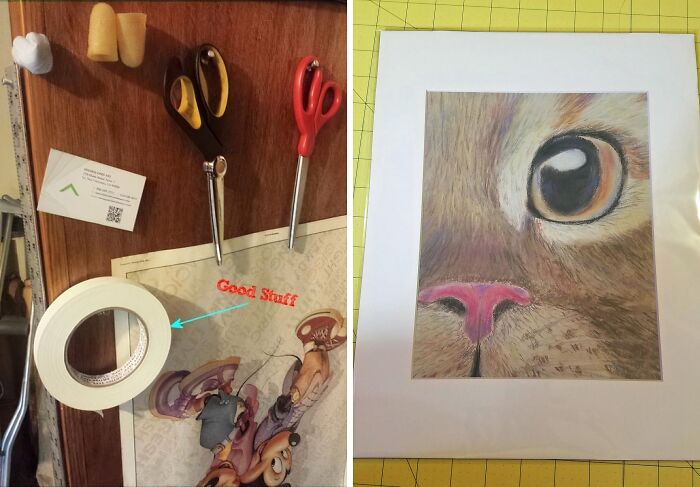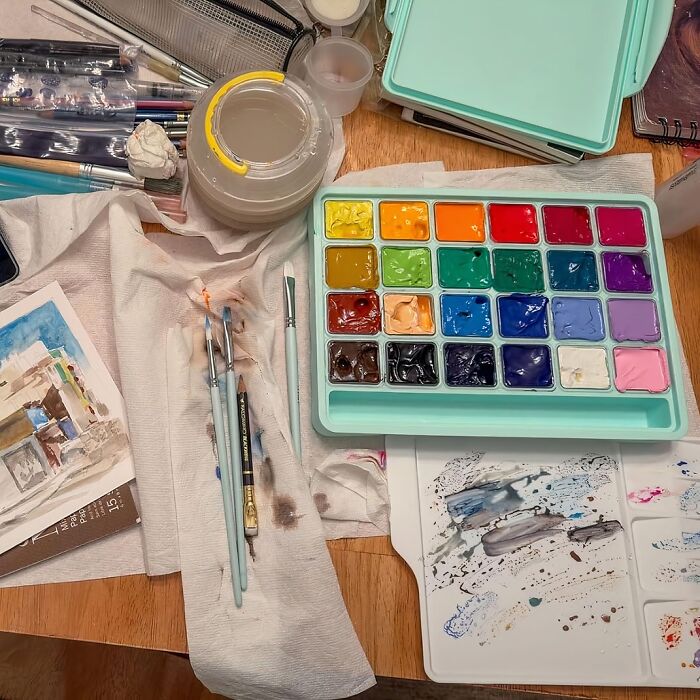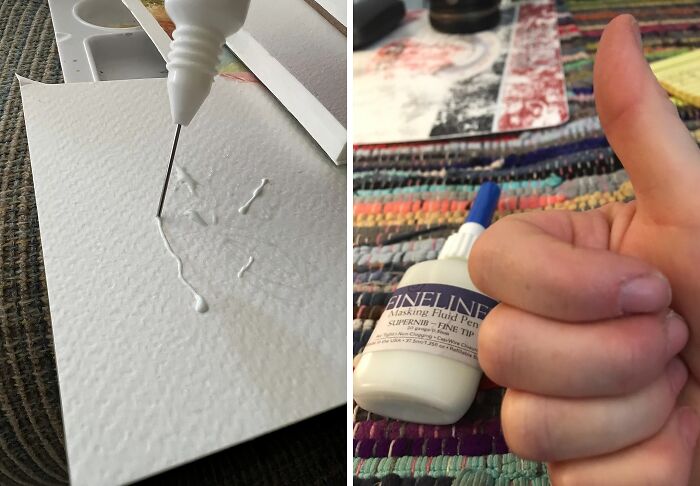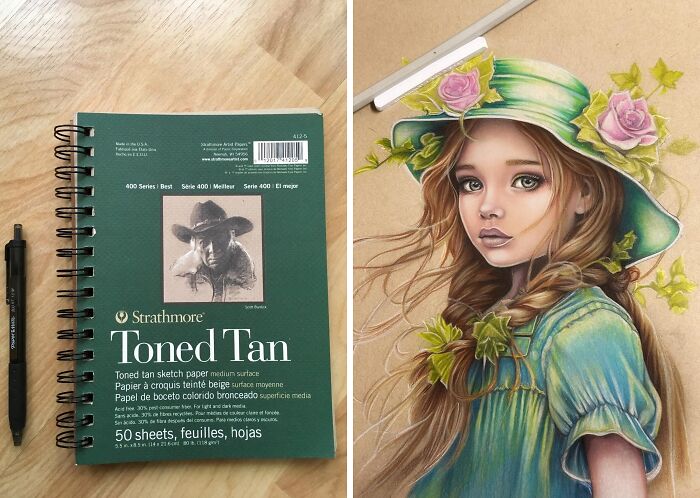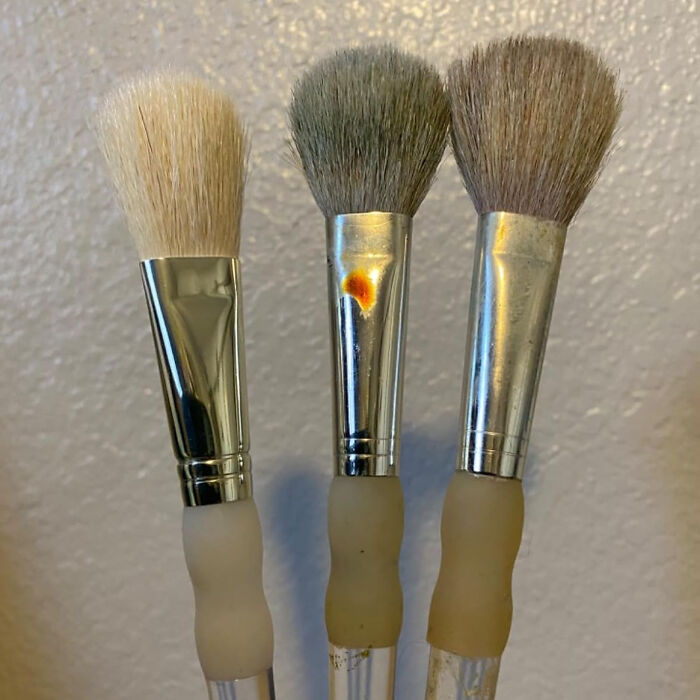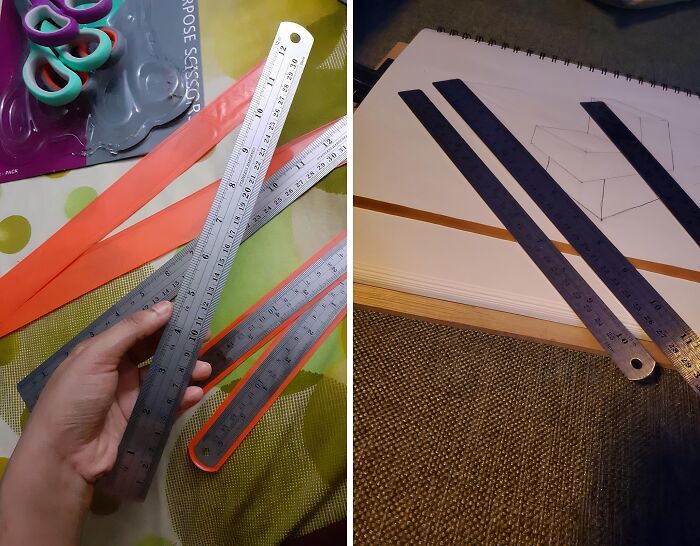Feeling a bit creatively constipated? Fear not, fellow artists! We're about to unleash a torrent of inspiration that would make even Picasso do a double take. (And maybe even reconsider that whole "blue period" thing.) Get ready to toss that dusty rulebook out the window and embrace the wild, wonderful world of art hacks!
These 12 genius tips and tricks will have you channeling your inner Van Gogh (minus the ear-slicing incident, of course). We're talking about unconventional techniques, unexpected materials, and a whole lot of creative chaos. So grab your paintbrushes, pencils, or whatever artistic weapon of choice you prefer, and let's get messy!
This post may include affiliate links.
Skip the graphite and use watercolor pencils to create your initial sketch. These versatile pencils allow you to effortlessly blend your lines into your watercolor washes, creating a harmonious and cohesive artwork. It's a fantastic way to achieve subtle transitions and avoid harsh outlines, especially for delicate subjects like flowers and landscapes.
Add precision and finesse to your drawings with a pen-shaped eraser! This handy tool allows you to create fine highlights, erase intricate details, and achieve crisp edges with ease. Its precise tip gives you complete control, making it ideal for adding delicate touches to your artwork and achieving professional-looking results.
Elevate your drawing skills and achieve accurate proportions with a proportional divider! This ingenious tool allows you to effortlessly scale up or down any reference image, ensuring your drawings are perfectly proportioned every time. Ditch the tracing paper and embrace a more confident and creative approach to capturing the world around you.
Set Your Charcoal And Pastel Drawings With Hairspray
A light misting of hairspray acts as a protective barrier for charcoal and pastel drawings, preventing smudging and fading over time. It's an affordable and readily available fixative that helps maintain the vibrancy and detail of your artwork, ensuring it lasts for years to come.
There's this thing called fixative they've been making for decades, designed precisely for this. Please dont use hairspray like an uninformed idiot.
But hold on tight, because we're just warming up those creative muscles. We're about to dive headfirst into a pool of artistic inspiration that will leave you splashing with excitement. These next few hacks are so out-of-the-box, they'll make you want to grab a paintbrush RIGHT NOW!
A projector is a game-changer for accurately transferring images onto your canvas. Simply project your reference image onto your desired surface, trace the outlines with a pencil, and voila – you have a perfectly proportioned sketch ready to be brought to life with your favorite medium. It's an ideal solution for tackling complex compositions, ensuring precise details, and saving you valuable time in the creative process.
I found an old engineering light table at a Government auction. Works great for this.
Get More Use Out Of Your Pencils With A Pencil Extender
A pencil extender is a simple yet ingenious tool that lets you utilize every last bit of your colored pencils, pastels, or even charcoal sticks. Simply insert the short pencil into the extender, and voila!
You've gained extra length and control, making it easier to create detailed strokes and reach those tricky spots. It's a must-have for any artist looking to maximize their supplies and minimize waste.
There Is Way More Than One Way To Use Tape
Unleash your inner artist with the humble yet versatile roll of tape! Forget messy paint spills and uneven lines. Tape is your new best friend in the art studio. Create sharp borders, geometric patterns, or even abstract designs with ease.
Experiment with different types of tape, from colorful washi tape to classic masking tape, to add texture and dimension to your artwork. Let your imagination run wild and see what masterpieces you can create with this simple yet powerful tool.
Add depth and vibrancy to your watercolor paintings with a touch of gouache! This opaque water-based medium is perfect for adding highlights, details, or even bold blocks of color to your watercolor creations. Its versatility allows you to achieve a variety of effects, from subtle accents to dramatic focal points, elevating your artwork to a new level of sophistication.
And last but not least, let's bust the myth that great art requires a hefty price tag. These final hacks prove that you can create masterpieces on a budget, even if your wallet is feeling a little lighter than your artistic spirit.
Preserve those pristine white spaces with the magic of masking! Whether you're using a masking pen for intricate details or applying masking fluid with a brush for larger areas, this technique allows you to confidently layer watercolors without worrying about unwanted bleeds or smudges. It's a game-changer for achieving crisp edges and vibrant contrasts in your watercolor paintings.
Tired of spending hours on shading? Ditch the blank white canvas and embrace the magic of toned paper! With mid-tones already established, you can focus on adding highlights and shadows, creating stunning drawings in a fraction of the time. It's a game-changer for capturing quick sketches or tackling large-scale projects with ease.
Tomed paper is nice for a number of reasons, but "saving time on shading" is not one of them. Art isn't a race or a measure of efficiency. It's supposed to be a slow process.
A soft brush is the perfect tool for blending graphite dust in your drawings, creating subtle gradients and realistic textures. Gently sweep the brush over your graphite marks to soften edges, create shadows, and achieve a professional finish. It's a simple yet effective technique that elevates your artwork and keeps your hands clean.
There Are Easier Ways To Paint Straight Lines With A Ruler
Straight lines can be tricky to paint, but there are two ways to keep your brushstrokes sharp and clean. First, use your finger as a guide, placing it along the edge of your paper or canvas to keep your brush on track.
Or, elevate your ruler game by holding it at an angle, letting the ferrule of your brush rest against it for a perfectly straight guide. No more smudges or wobbly lines!

 Dark Mode
Dark Mode 

 No fees, cancel anytime
No fees, cancel anytime 


